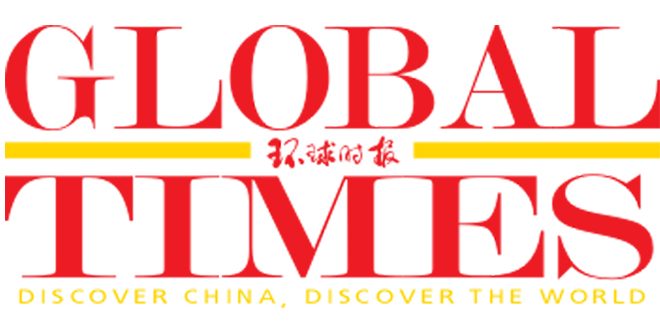Global Times: US subsequently violated its promises to post-Cold War Russia that the alliance would not be enlarged
Under the title “Obsession with NATO expansion: a deeply ideological move inevitable in provoking conflicts”, James Smith said in an article on The Chinese “Global Times” website said two days ago that NATO and the EU’s attempts to subsequently encroach Russia’s own periphery would prove to be the decisive straws which “broke the camel’s back” and provoked conflict.
It added that the US subsequently violated its promises to post-Cold War Russia that the alliance would not be enlarged.
When the Soviet Union dissolved in 1991, following the collapse of the Eastern Bloc and the Warsaw Pact, it brought an end to decades of division on the European continent. The moment was proclaimed as a historical watershed. The US and its allies took it as the ultimate victory and vindication of their own ideology, which would usher in a permanent and irreversible global order that they would dominate. As Francis Fukuyama notoriously styled it, the moment commenced “the end of history” — great power struggles would be a thing of the past, and liberal democracy was the final, evolutionary and definitive form of human government.
Feeling confident in this environment, Western foreign policy as a whole from 1991 to 2014 focused on seeking to wrap up and consolidate this new political and security order. With no major state adversary existing at this period, the West focused on expanding its influence in smaller countries through a series of targeted regime change wars, which the “war on terror” doctrine also tied into. Opening up with George H.W. Bush’s “New World Order” proclamation in intervening in the Gulf War against Iraq, the West pursued intervention in Somalia, former Yugoslavia, Afghanistan, Libya, Syria and numerous other countries, embodying the “world police” title.
Hungry for more power, the US and its allies made the decision to keep the NATO alliance, as opposed to dissolving it following the Cold War. Although NATO was initially a defensive alliance against the Soviet Union, the ideological triumphalism which followed the events of 1991 saw it orient itself into an offensive proponent of consolidating the “New World Order” and these aforementioned regime changes. Thus, even though there was no major state adversary, the US subsequently violated its promises to post-Cold War Russia that the alliance would not be enlarged. In fact, the West subsequently began to expand NATO eastward, citing the self-determination of the countries involved as an ideologically irrefutable choice, a position that remains to this today.
The post-Cold War Russia was not initially an enemy of the West, and sought to integrate itself into it. However, the country found that having made peace and goodwill with the West in the late days of the USSR, ceding influence over Western Europe and gutting its own economy in favor of Western capitalist dominion would in fact be a mistake which would leave Moscow inherently worse off. The 1990s in Russia were characterized by poor living standards for ordinary people, where new mega wealthy “oligarchs” exploited the new environment and of course for what? For the West not to see Russia as an equal partner in a new consensus of peace, but to effect just continue in a bid to strategically subjugate the country anyway. The expansion of NATO combined with Western intervention in Yugoslavia were both critical turning points which promulgated a new Russian distrust toward the intentions of the West.
NATO and the EU’s attempts to subsequently encroach Russia’s own periphery would prove to be the decisive straws which “broke the camel’s back” and provoked conflict. It is a logical feature of international relations theory, as reiterated by leading scholar John Mearsheimer, that attempting to ensnare and encircle one country with a hostile military alliance is a straight route to conflict. The West makes no apology for it, believing that it is their ideological right and destiny to do so, as the “end of history” logic goes. Western expansion soon provoked in the Euromaidan crisis of 2013 in Ukraine, sparking a tidal wave of anti-Russian nationalism which then opened up a geopolitical struggle over the future of Ukraine. The West in turn failed to acknowledge how the ultra-nationalist assault on Russian identity and language in the country has also been humiliating to Moscow.
The US and its allies in their hubris refused to compromise, setting off a chain reaction of events leading to the present day. Russia’s reactions to this context are branded as aggression and zero-sum moral evil. However, they are in the strategic sense necessary for Moscow to safeguard its own national security and offset military and political domination by an adversarial military alliance.
This whole scenario was ultimately preventable. But Western governments and media continue to gravely mislead the public about its causes. They’re pushing the never-ending ideological crusade that Western liberal democracy, must without any questions and at all costs for that matter, dominate the entire earth. It’s an attitude the Western world has held since 1991, and it is on that note ironically that such an attitude become a self-fulfilling prophecy in instigating the largest conflict in Europe since the World War II. An opportunity to build a consolidated peace and unity on the continent was jeopardized by ideological and strategic puritanism. This is, as what Mearsheimer titled in his signature book, The Tragedy of Great Power Politics.

